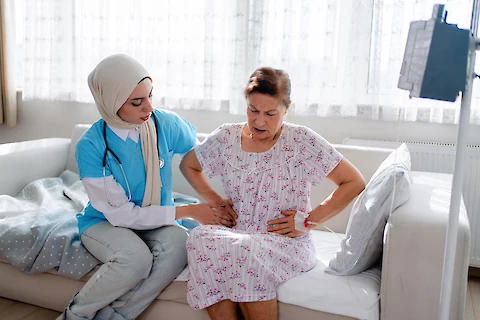
Every year, lives are lost to various forms of cancer. This devastating disease is particularly brutal amongst women, who are often too busy taking care of their families to notice early symptoms. However, in light of Cervical Cancer Awareness Month in January, many healthcare providers are speaking out about the prevalence of cervical cancer–and how it affects senior women. Here's what you need to know about cervical cancer in senior women, straight from Senior Helpers Richmond West.
What Factors Increase the Risk of Cervical Cancer?
According to the World Health Organization, cervical cancer is the fourth most frequent cancer in women, with an estimated 604,000 new cases in 2020. While cervical cancer can affect anyone, it is very prevalent among senior women aged 65+. A few factors can increase the risk of this cancer in senior women. These include:
- History of other cancers. Women who have previously fought cancer or already have another type of cancer are more susceptible to cervical cancer.
- Obesity. Obesity can cause a host of health issues, including a predisposition to certain cancers.
- A weakened immune system. Certain medications or conditions can cause senior women to have weakened immune systems - and this can be a factor that increases the risk of cervical cancer.
Preventative Monitoring is the Best Defense Against Cervical Cancer
Preventative monitoring through regular checkups with your doctor can go a long way toward catching the signs of cervical cancer early. In general, senior women should try to get a pap smear every three to five years, get a pelvic exam every year, and be aware of their risk factors for cervical cancer. There are also things that seniors can do to limit their risk factors for cervical cancer, such as limiting their alcohol intake, eating a healthy diet, getting regular exercise, and always practicing safe sex, including using condoms to reduce the risk of HPV infection.
Contact Your Doctor With Any Concerns
While ideally, you should be checking in with your doctor for regular examinations, if you do start to experience any symptoms that are new or unfamiliar, contact your doctor right away. Maintaining an open line of communication with your doctor is also a good idea. You can ask about any risk factors that you have for cervical cancer and how you can minimize those factors in your everyday life. Remember that your doctor and the rest of your medical care team want you to remain happy and healthy and will do everything they can to give you peace of mind.
Senior Helpers Encourages Seniors to Live Healthy, Happy Lives
While nothing can completely prevent a senior from getting cancer, minimizing risk factors and remaining aware of their health can go a long way toward ensuring that senior women stay healthy and well. For personalized caregiving services in Richmond, Midlothian, Petersburg, and Glen Allen, contact Senior Helpers today! We love helping senior adults thrive, both mentally and physically.